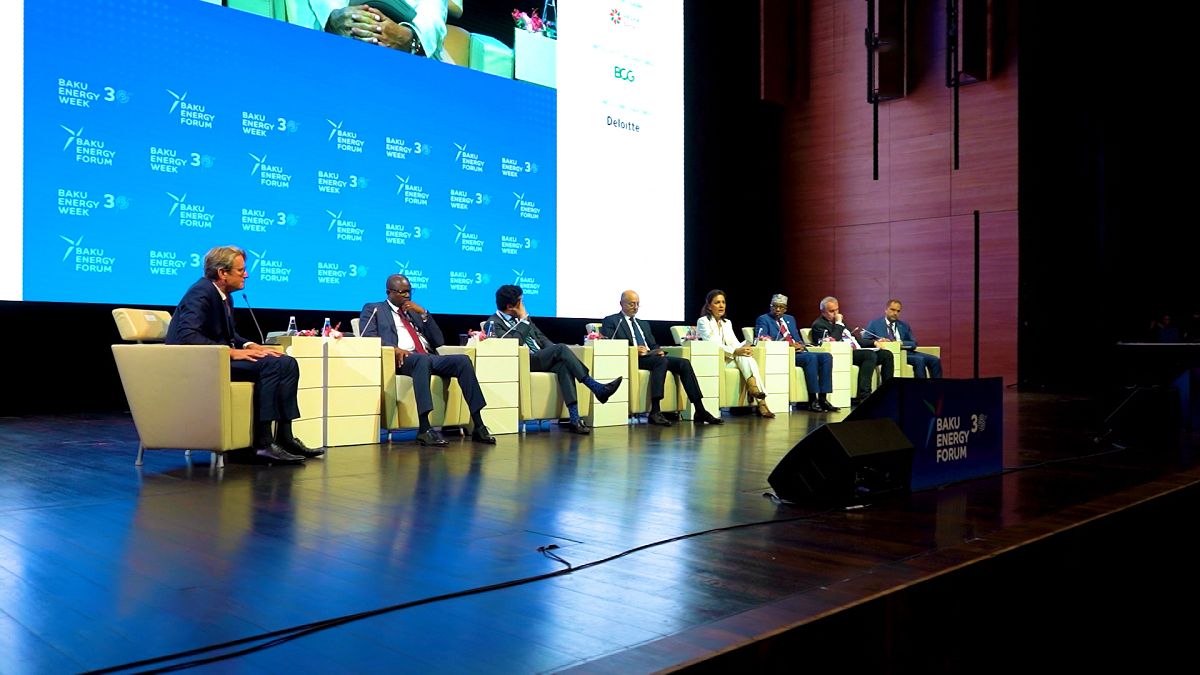

In an era where environmental concerns intertwine deeply with economic and social issues, global and local responses highlight a collaborative spirit aimed at fostering sustainability and resilience. This week, various developments across sectors underscore the critical steps different regions are taking toward a more sustainable and climate-resilient future.
At the Baku Energy Forum, a call reverberated through the halls as leaders and CEOs urged a collective global effort to significantly enhance renewable energy capacity, aiming to triple output by 2030. This ambitious target reflects a mindful recognition of the pressing need to meet climate goals through innovative investment and technological advancements. As climate change impacts become increasingly palpable, the overarching theme of the forum was one of urgency fused with optimism—an acknowledgment that while challenges abound, concerted action can pave the way to a renewable future.
Meanwhile, in Greece, the serene island of Chios contends with more immediate environmental challenges. Over the past several days, firefighters have been tirelessly battling wildfires that prompted evacuation orders for local villages. The efforts underscore the resilience of emergency services and local communities, even as investigations into possible arson continue. This situation illustrates the dual nature of current environmental issues—immediate response to acute crises running in parallel with long-term strategies for mitigation and adaptation.
Further southwest in Mauritania, a different kind of environmental stewardship is underway. The nation is embarking on a path toward sustainable fishing practices with support from the European Union. Within this initiative lies an essential balance: protecting vital marine resources while ensuring economic vitality for local communities dependent on fishing for their livelihoods. The EU-Mauritania partnership highlights how international cooperation can bolster local efforts, securing jobs and food security while fostering ecological preservation.
The sustainable fishing agreement aligns with broader global movements towards responsible resource management, offering a blueprint for how regions can simultaneously pursue ecological preservation and economic stability. This partnership is particularly critical in regions where natural resources underpin both culture and economy, emphasizing that the pursuit of sustainability is as much about protecting livelihoods as it is about conserving nature.
As heatwaves become a familiar feature of European summers, thoughtful actions and preventative measures surface as key to maintaining health and comfort. Health experts advise that staying cool during periods of extreme heat is especially crucial for vulnerable groups, such as children, the elderly, and individuals with certain health conditions. Simple strategies like staying hydrated, wearing lightweight clothing, and utilizing cooling devices can significantly alleviate the strain of soaring temperatures, promoting well-being even in the face of climatic extremes.
These developments collectively paint a picture of a world actively grappling with the complexities of environmental change. From strategic global dialogues to local community resilience, the tapestry of responses is diverse yet unified in purpose. As leaders set ambitious renewable energy targets and nations like Mauritania pursue sustainable resource management, there emerges a shared understanding: collaborative, pragmatic, and compassionate approaches are integral to navigating the environmental challenges of today and tomorrow.
Through these cooperative endeavors and individual actions, a calm yet determined spirit prevails, reminding us that although the path ahead may be complex, it is navigable with mindful engagement and sustained effort.
Source: {link}
